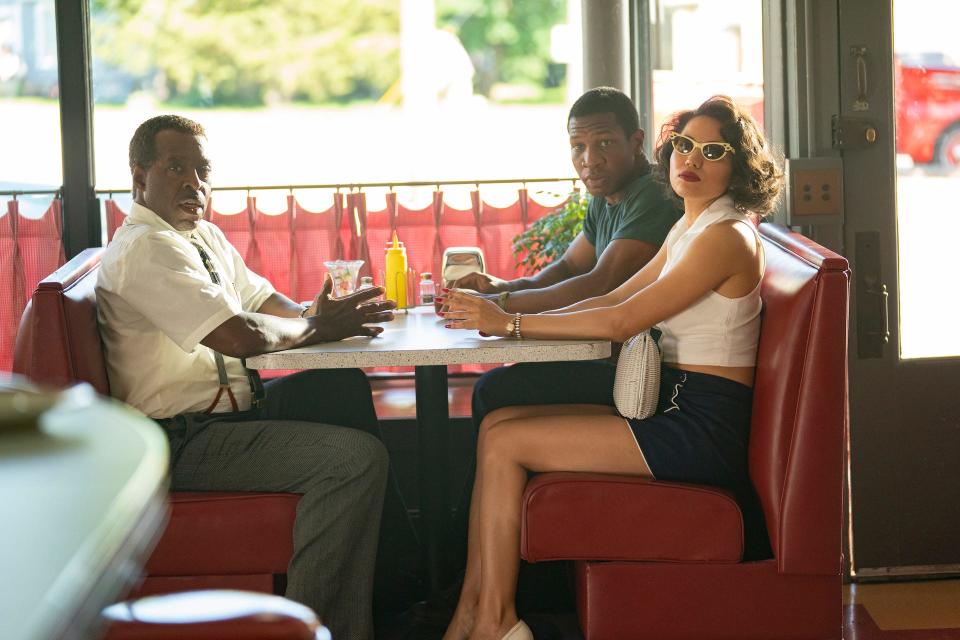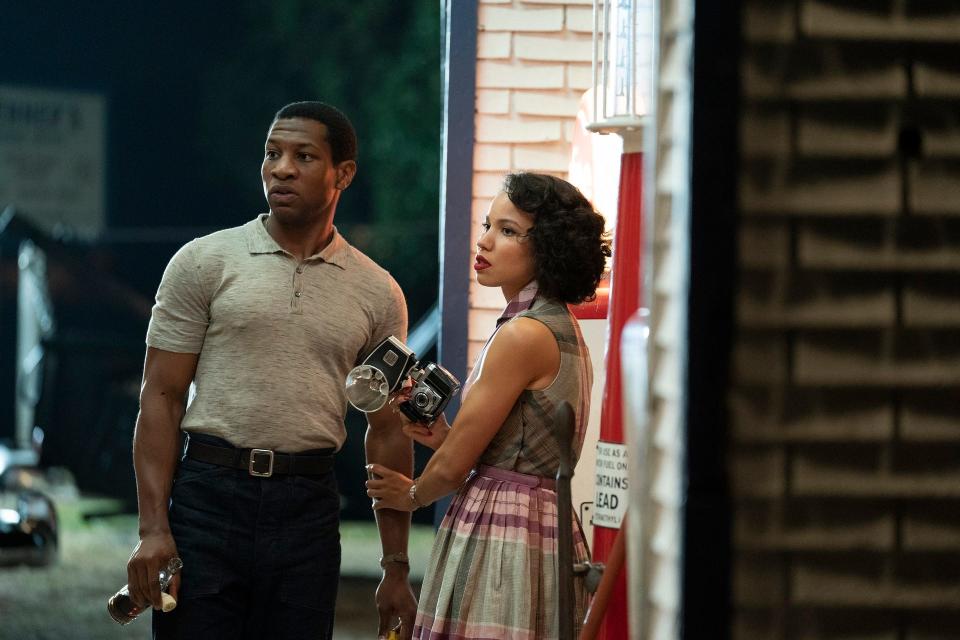'Lovecraft Country' review: In HBO's horror series, America's racism is the real monster
"Lovecraft Country" is a perfect TV series for 2020. Too perfect.
The new 10-episode HBO series, based on the 2016 novel by Matt Ruff, is set in 1950s Jim Crow America. But its allegorical and literal approach to the horrors of racism feels aptly suited to a cultural moment in which America is once again reckoning with its racist past and present. "Lovecraft" brings the shadow of institutional racism, which many like to pretend is behind us, into sharp relief, reminding viewers that the past is never really gone.
Also, there are monsters.
"Lovecraft" (premiering Aug. 16, Sundays at 9 EDT/PDT, ★★★? out of four) is a parable for our times. Created by Misha Green ("Underground") and produced by Jordan Peele and J.J. Abrams, the series is relevant to any time in American history because it so profoundly portrays and then dissects racism, the country's original sin. It's also a rip-roaring genre adventure full of terrifying monsters, creepy mysteries and absolutely superb acting from stars Jurnee Smollett, Jonathan Majors, Courtney B. Vance and Michael K. Williams.
Interviews with the cast: 'There's a horror in just being Black': HBO's 'Lovecraft Country' digs into real racism with pulp fiction

Riffing off horror tropes from celebrated writer H.P. Lovecraft – and reacting to his open and vicious racism – the series uses fantasy and science fiction to explore what it was like to live as a Black person in 1950s America. (Notably, the series and its many horrifying instances of racism take place in Northern states, helping to dispel the notion that the Jim Crow South was the only seat of America's racist history.)
The series opens as Atticus "Tic" Freeman (Majors) reluctantly returns home to the South Side of Chicago to search for his missing father, Montrose (Williams). A letter from Montrose suggests he might be in a remote county in Massachusetts, so Tic and his Uncle George (Vance) and friend Letitia "Leti" Lewis (Smollett) hit the road to search for him. After enduring the indignities of monstrous white racists on the way, they encounter actual monsters, eventually entangling them with a magical secret society that aims to exploit Tic and Leti's families.

"Lovecraft" is overflowing with atmosphere: Its visuals are wrought in vivid colors and scored to kicky modern music (from Cardi B to Rihanna to "The Jeffersons" theme song). The first episode is astounding and affecting as an entry point for the story, gripping in its tension when the characters face dangers both real and fantastical.
Smollett is a breakout, and given far more screen time to demonstrate her acting prowess than in her turn in February's "Harley Quinn: Birds of Prey." Leti isn't confined by stereotypes about Black women, and takes on a pivotal role in the action. Vance, who radiates a sense of paternal calm and wisdom, is expertly deployed, and George, an author of guidebooks for the Black community, goes to surprising places, when a lesser show could have made his story too predictable.

The series is primarily about Tic, Leti, George and Montrose, but it makes space to explore different Black experiences and horror tropes by focusing on supporting characters in some episodes. Leti's half-sister Ruby (Wunmi Mosaku) has a remarkable arc that examines relationships between Black and white women in a way no other series has before.
The series runs through its affecting stories with astounding speed, occasionally losing the narrative thread while explaining mythology. The first two episodes, the highlight of the five made available for review, feel more like a standalone film, so centered and complete is their plot. But there's some awkwardness in the transition to new stories in the rest of the season, rendering the third episode in particular a bit anticlimactic.
But occasional missteps in pacing are a minor issue in the scheme of the series, which makes such powerful use of its excellent acting, smart scripts and vibrant visuals, it smooths over a few shaky moments.
The best genre stories are about more than the just monster that lives under your bed. Like Peele's "Get Out," they use the building blocks of fantasy and horror to lure the viewer into to a story more profound and revealing. "Lovecraft" is that kind of story, both insightful and just plain scary.
This article originally appeared on USA TODAY: 'Lovecraft Country' review: In this horror show, racism is the monster
